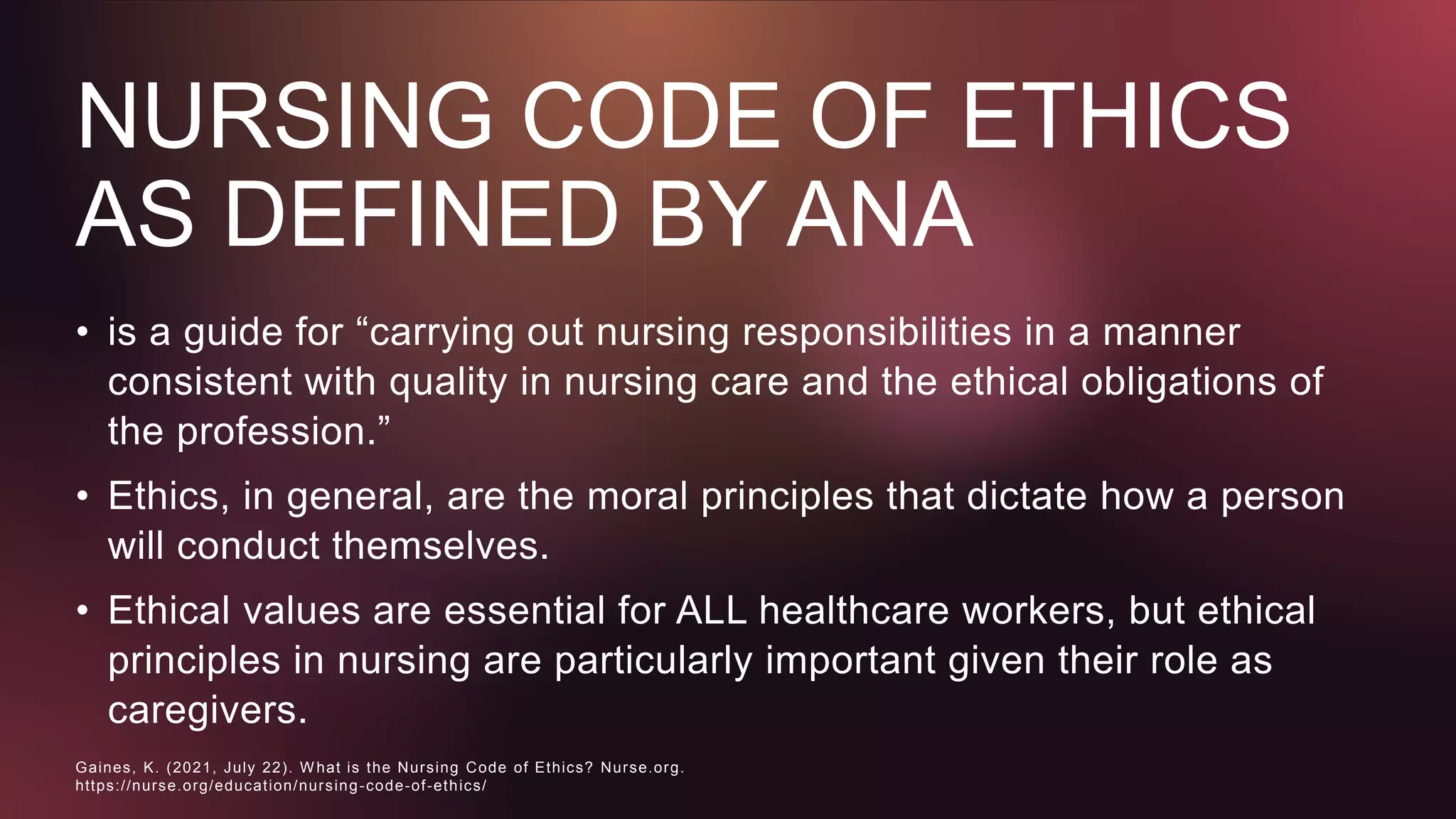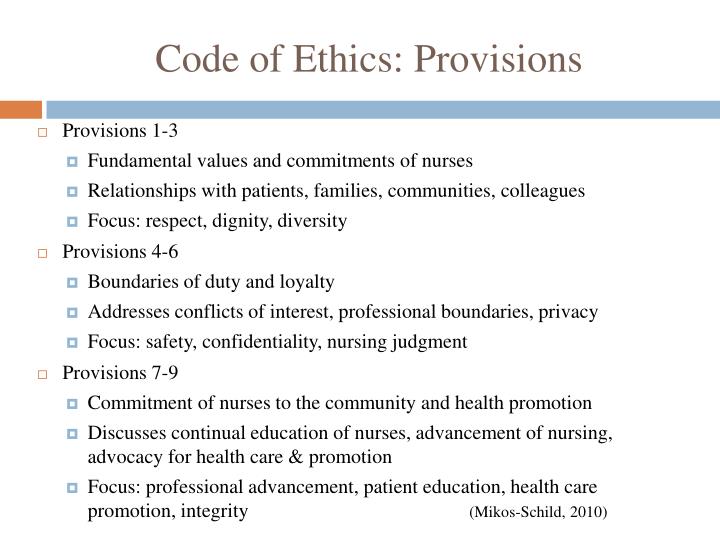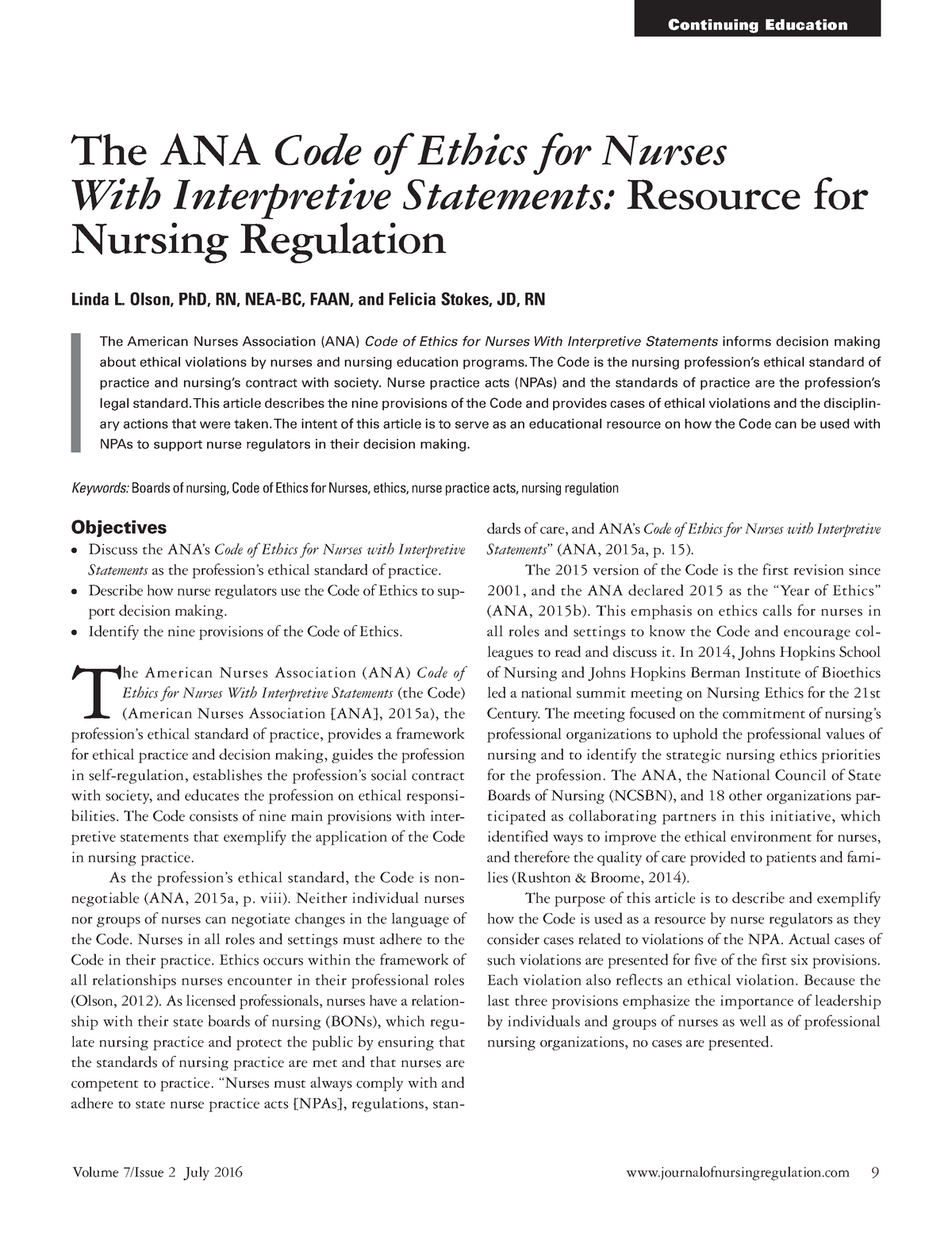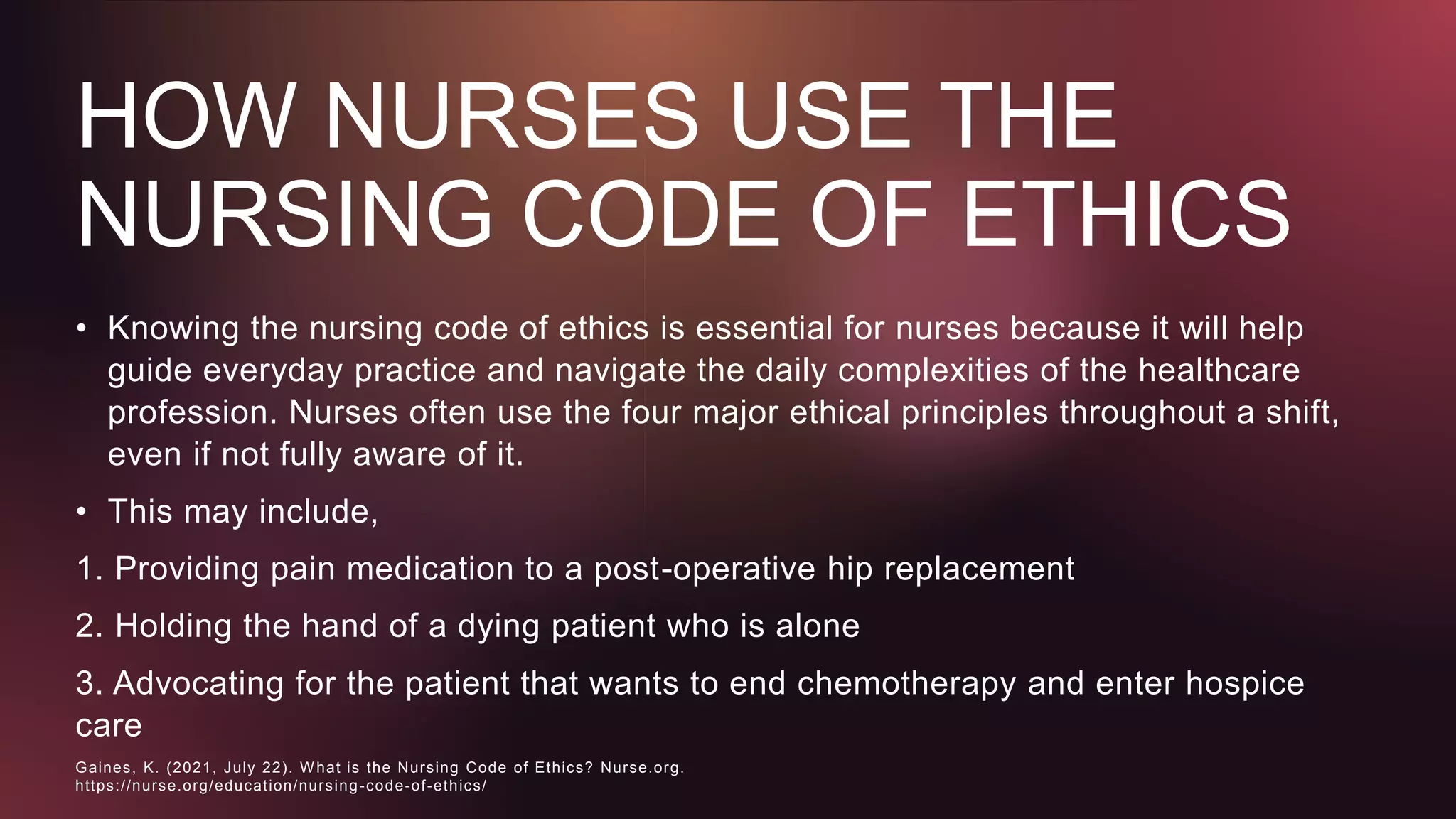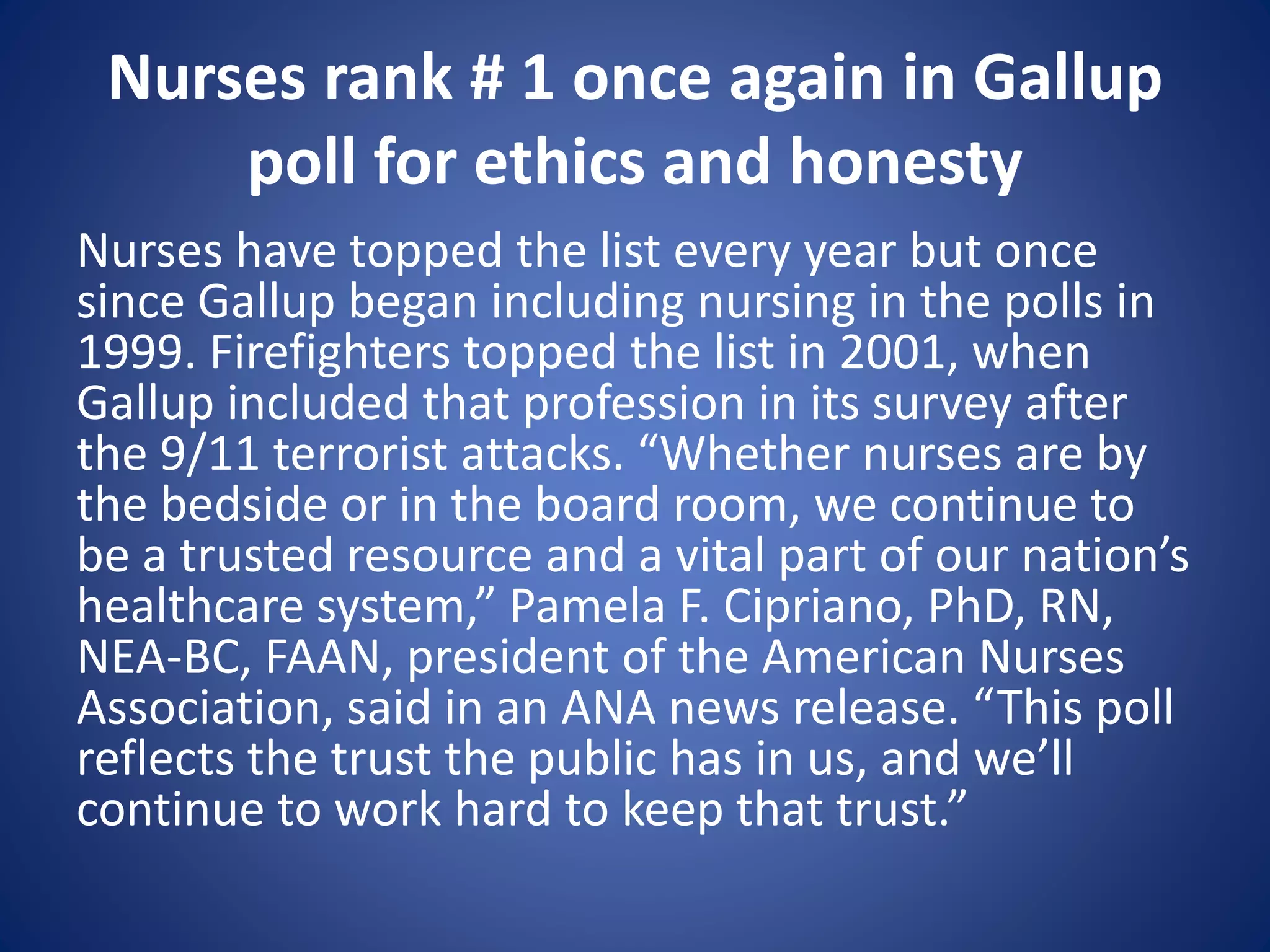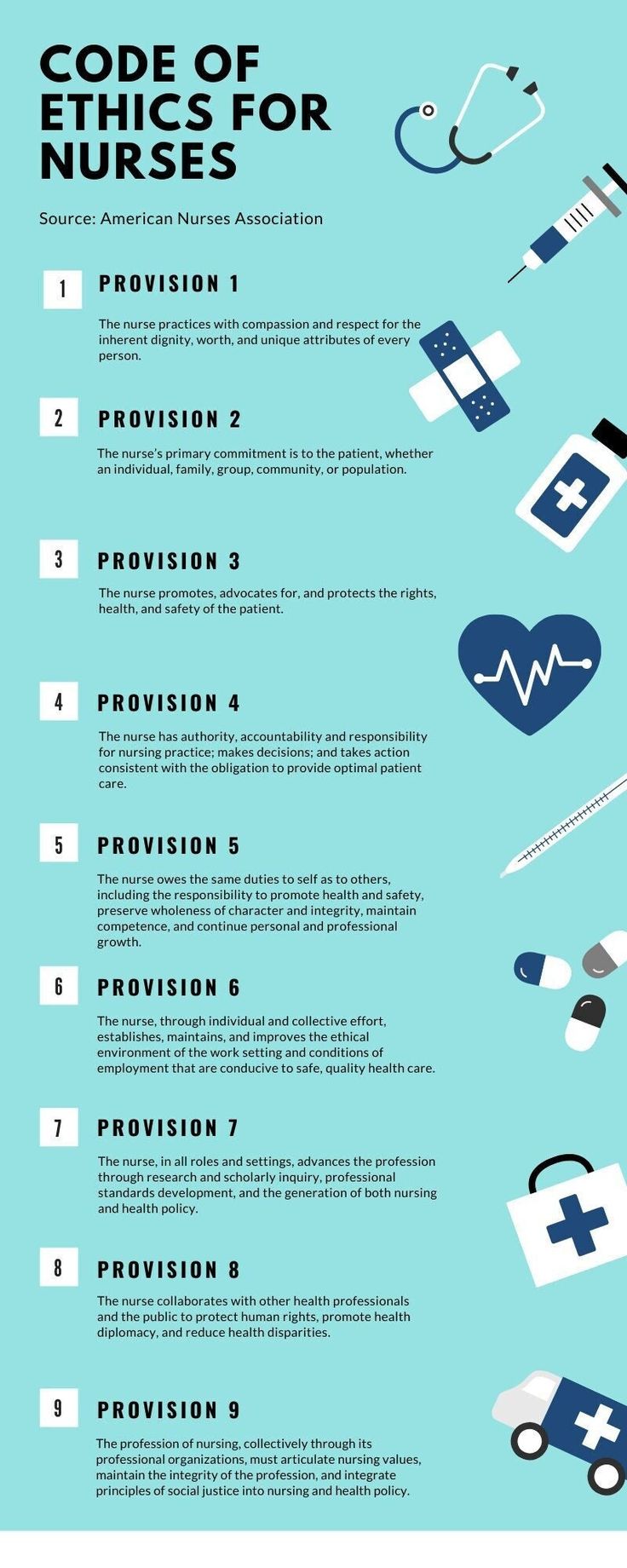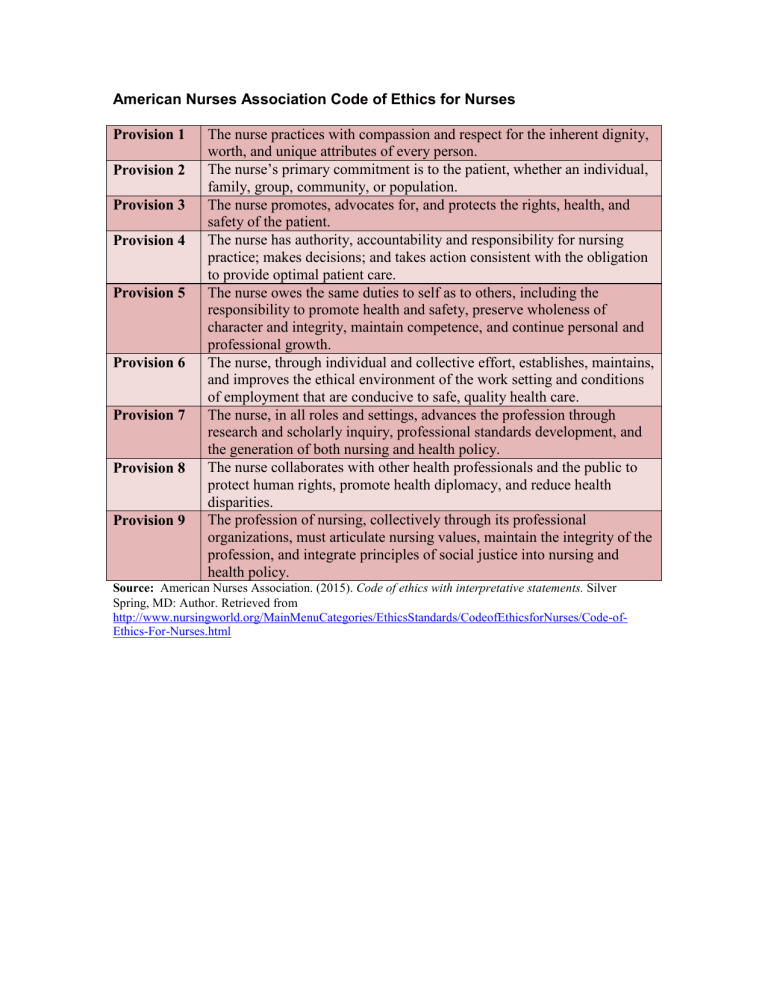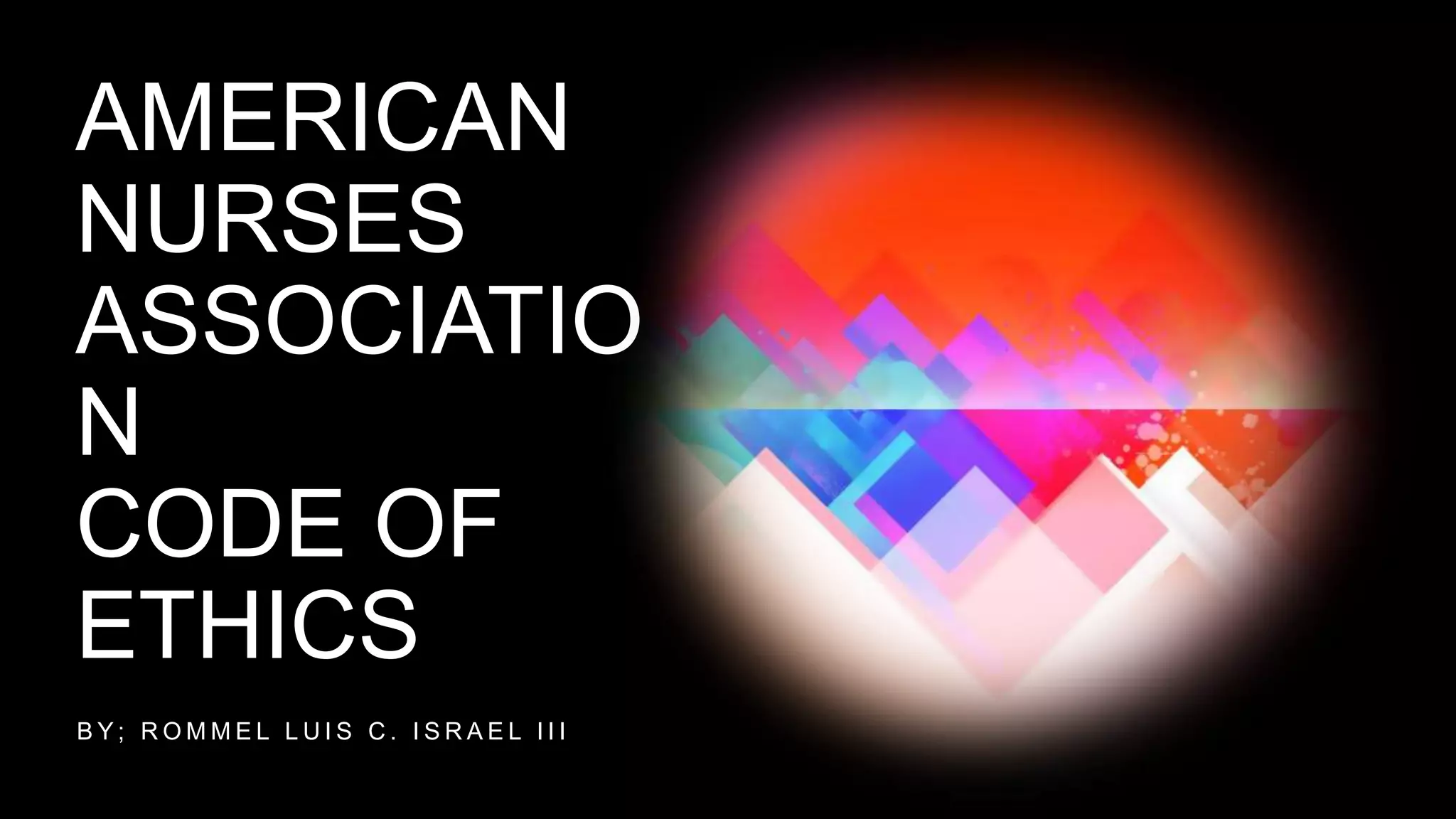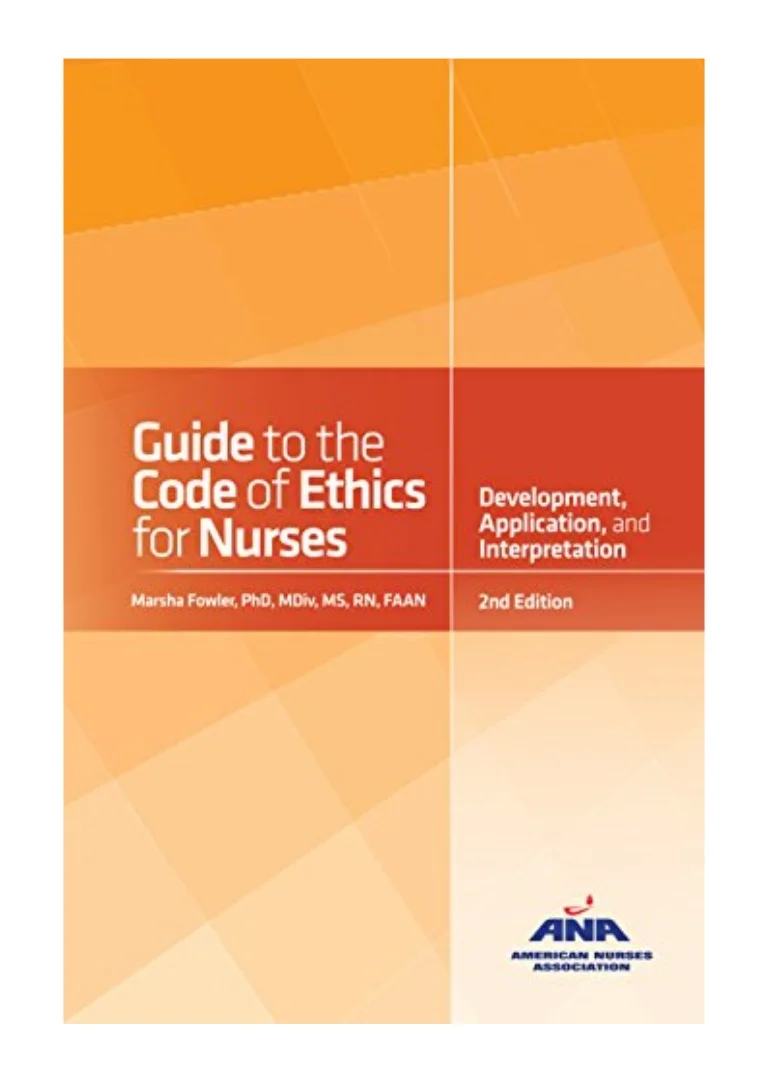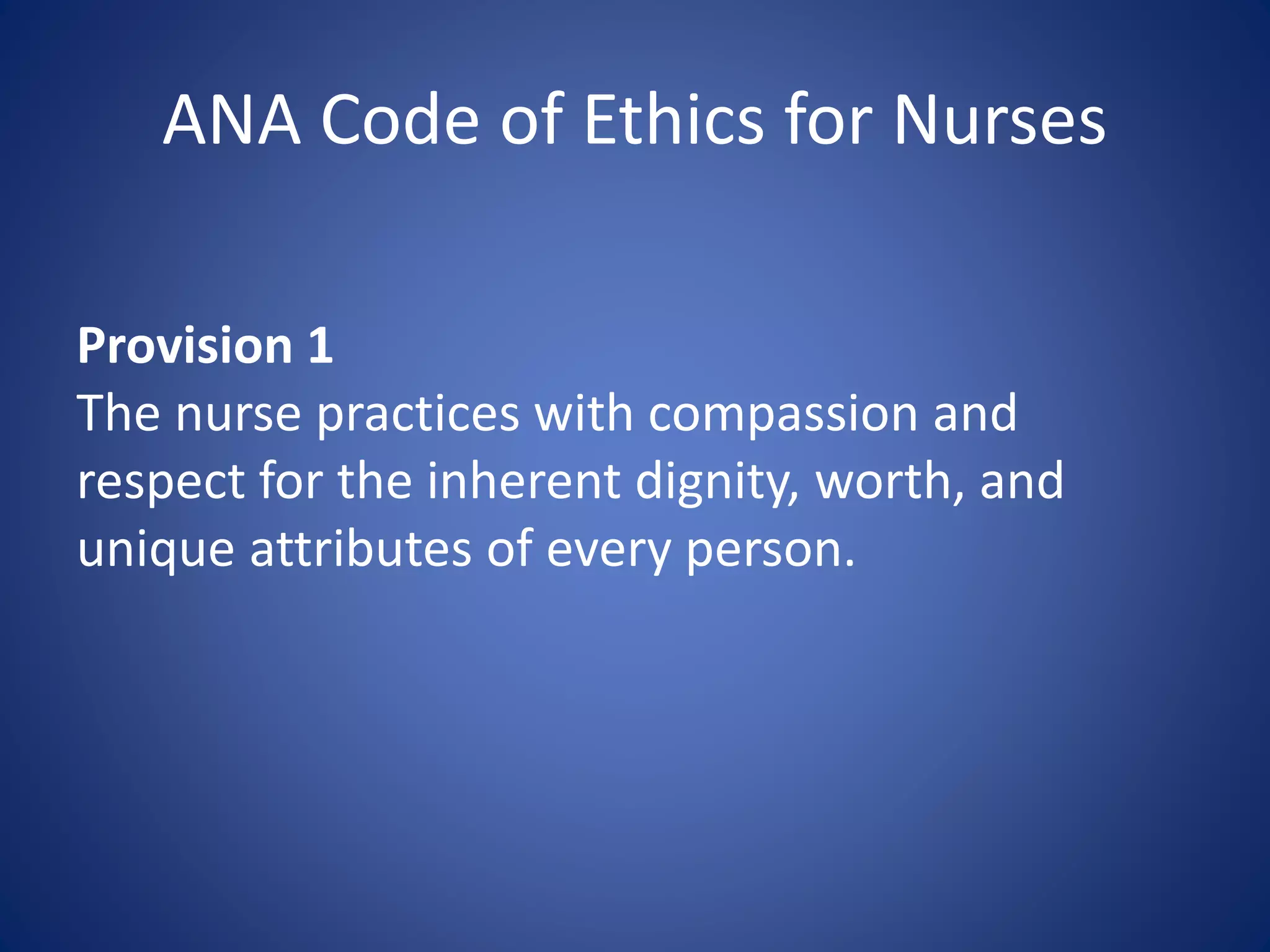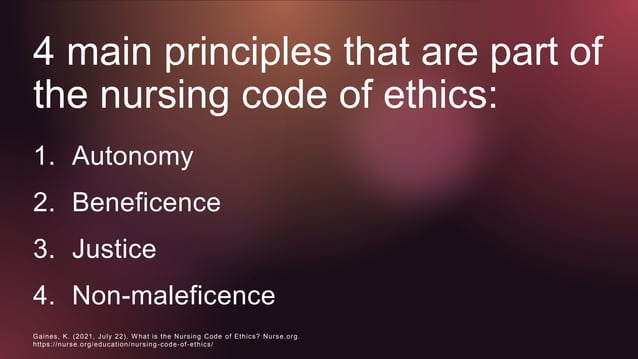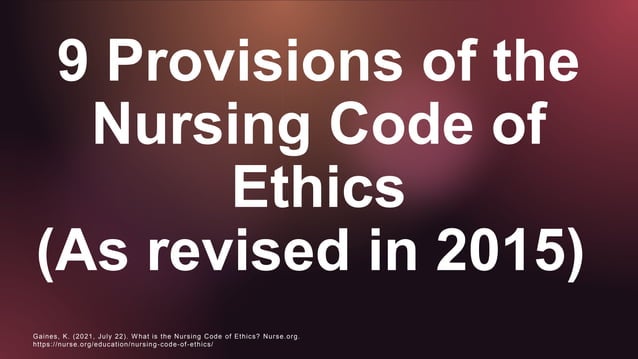Ana Nursing Code Of Ethics Pdf

The American Nurses Association (ANA) Code of Ethics for Nurses with Interpretive Statements, a cornerstone document guiding ethical conduct in nursing, is under renewed scrutiny amidst ongoing healthcare challenges.
This essential resource, available as a PDF, provides a framework for nurses to navigate complex ethical dilemmas, ensuring patient well-being and upholding professional standards.
The ANA Code: A Foundation for Ethical Practice
The ANA Code of Ethics serves as a non-negotiable ethical standard for all nurses. It outlines nine provisions, each with detailed interpretive statements, addressing fundamental values, moral obligations, and responsibilities of the nursing profession.
The Code is designed to promote ethical decision-making and guide nurses in resolving conflicts between their personal values and professional duties.
Key Provisions of the Code
Provision 1 emphasizes respect for human dignity. It mandates that nurses must practice with compassion and respect for the inherent dignity, worth, and unique attributes of every person.
Provision 2 focuses on the nurse’s primary commitment to the patient. This commitment includes patient autonomy, privacy, and the right to informed consent.
Provision 3 addresses the nurse's responsibility to advocate for and protect the health, safety, and rights of the patient. This includes speaking up against unethical practices and advocating for vulnerable populations.
Provision 4 highlights the nurse's authority, accountability, and responsibility for nursing practice; makes decisions; and takes action consistent with obligation to promote health and provide optimal care.
Provision 5 underscores the nurse's duty to self. It encourages nurses to maintain their own competence, well-being, and personal integrity.
Provision 6 emphasizes the nurse's role in establishing, maintaining, and improving the ethical environment of the work setting and the conditions of employment that are conducive to safe, quality health care.
Provision 7 addresses the nurse's participation in advancing the profession through contributions to practice, education, administration, and knowledge development.
Provision 8 highlights the nurse's responsibility to collaborate with other health professionals and the public to protect human rights, promote health diplomacy, and reduce health disparities.
Provision 9 states that the profession of nursing, collectively through its professional organizations, must articulate nursing values, maintain the integrity of the profession, and integrate principles of social justice into nursing and health policy.
Accessing the PDF and Utilizing the Code
The ANA Code of Ethics PDF is readily accessible on the ANA website and other nursing resource platforms.
Nurses are encouraged to download, review, and utilize the Code as a guide for ethical decision-making in their daily practice. Many institutions incorporate the Code into their ethics training programs.
Impact of the Code on Nursing Practice
The ANA Code of Ethics has a profound impact on nursing practice, shaping the profession's ethical landscape. It serves as a moral compass, guiding nurses through difficult situations and promoting patient-centered care.
It helps nurses navigate ethical dilemmas related to end-of-life care, patient confidentiality, informed consent, and resource allocation.
"The Code is not just a set of rules; it's a reflection of the values and principles that define the nursing profession," stated Dr. [Name Redacted], a leading nursing ethicist.
Ongoing Challenges and Future Directions
Despite the Code's importance, ethical challenges in nursing continue to evolve. Issues such as moral distress, burnout, and resource limitations pose significant threats to ethical practice.
The ANA is committed to updating and refining the Code to address these emerging challenges. This includes providing resources and support for nurses facing ethical dilemmas.
The ANA will continue to monitor the evolving healthcare landscape and update the Code as needed to ensure it remains relevant and effective in guiding ethical nursing practice. Further research and education are crucial to promote ethical awareness and competence among nurses.
